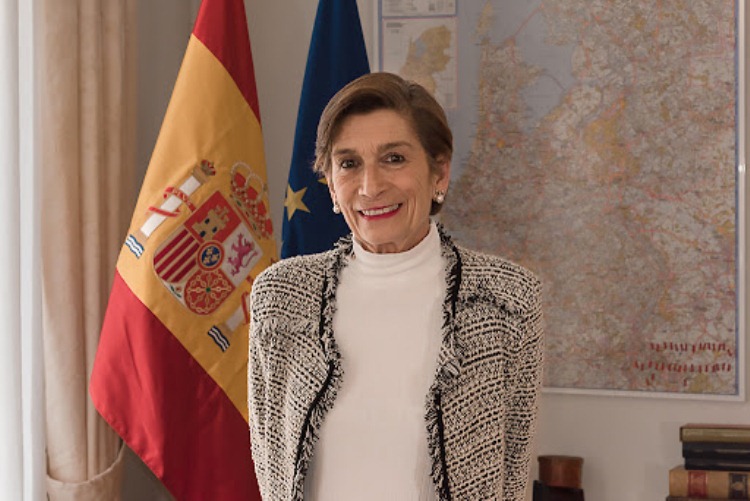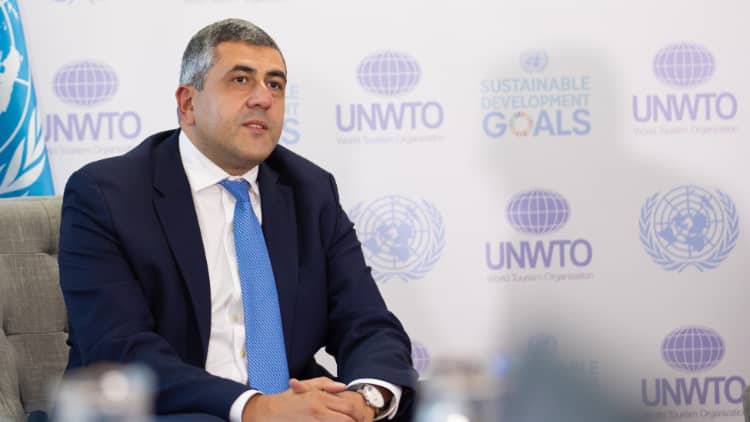Luis Ayllón
The government intends to appoint diplomat María Jesús Alonso as Spain’s new ambassador to Argentina, once the Argentinean authorities agree to her request for plácet, The Diplomat has learned from reliable sources.
María Jesús Alonso Jiménez, currently Ambassador to the Netherlands, will be the first woman to head the Spanish Embassy in Buenos Aires, which is one of the most important diplomatic representations for our country, given the historical ties and the large presence of Spanish companies in Argentina.
Alonso will replace Javier Sandomingo, who had been announced for the change in 2020, but was finally instructed to remain in the post for one more year, a circumstance that prevented him from acceding to the Consulate General in Miami for which he had aspired.
As reported at the time by Voz Populi, Podemos tried to get the president of the government, Pedro Sánchez, to agree to send to Buenos Aires a person chosen by the purple party, but in the end he did not achieve his goal.
Sánchez and his Minister of Foreign Affairs, José Manuel Albares, have finally opted for a career diplomat with extensive experience, who before becoming ambassador to The Hague, was also ambassador to Cameroon and Ghana and held various positions in both the Ministry of Foreign Affairs and the Presidency of the Government.
The Embassy in Argentina will be one of the most important for Spain to be headed by a woman, one of the aspirations of the Association of Spanish Women Diplomats (AMDE). It will not be the most important one occupied until now, since, after coming to power, Pedro Sánchez dismissed María Victoria Morera, who was ambassador in Berlin, where she had been for less than two years, appointed by the government of Mariano Rajoy.
Albares has already begun the process of replacing between 50 and 60 ambassadors by 2022, almost half of Spain’s current 128 ambassadors around the world. Among the embassies that, in principle, are expected to change their posts over the next year are those of great importance to Spain’s interests, such as those of the United States, Germany, China, Mexico, Brazil, Morocco, Algeria and Portugal, in addition to the country’s permanent representations to the UN and NATO.
As a result, several diplomats who were senior officials in the Rajoy government, and who have been in their posts for between three and four years, will foreseeably be relieved of their duties, as well as others appointed by Pedro Sánchez’s government in 2018. All of them are posted to embassies where ambassadors usually stay for four years.
Thus, according to The Objective, the government has already asked for the go-ahead to appoint Fidel Sendagorta, former director general of Foreign Policy, as ambassador to Japan, replacing Jorge Toledo, who was state secretary for the European Union when Alfonso Dastis was Minister of Foreign Affairs.
Other ambassadors appointed during the last PP mandate and who will be reached by the changes are: Ildefonso Castro (Ireland), former director of Moncloa’s Department of International Affairs under Mariano Rajoy and former state secretary for Foreign Affairs; Fernando García-Casas (Brazil), former state secretary for Ibero-America; Jorge Moragas (Philippines), former head of Rajoy’s cabinet; or former minister Dastis himself (Italy).
According to rumours circulating in the Foreign Ministry, Castro could be replaced by Ion de la Riva. In the case of Dastis, the same rumours suggest that if he is replaced, it would be after four years in the post, which will be in September 2022, at which point he could be appointed to another embassy.
In any case, the names of possible new ambassadors have begun to emerge, even before a call for applications for the posts has been made public. This call for applications, known in diplomatic jargon as ‘Embabombo’, has been made in recent years around October, following the provisions of the Diplomatic Career Regulations approved at the time when José Manuel García Margallo was minister, despite the fact that the regulation was annulled by a court decision and has not yet been replaced.
In other words, the Ministry is under no obligation to hold this competition for ambassadorial posts, but diplomats were hoping that, as the Undersecretary for Foreign Affairs, Luis Cuesta, had informed them, there would be a call for applications before the end of autumn.
The truth is that, in addition to the posts in Tokyo and Buenos Aires, some of the embassies that were to be put out to tender have already been assigned new incumbents. This is the case of Denmark, where Victoria González Román, until a few months ago director general for Europe, will apparently be posted.
As for the vacancy left by María Jesús Alonso in The Hague, sources consulted by The Diplomat indicate that it could be filled by the diplomat Consuelo Femenía, until now ambassador to Malta, and wife of the former Minister of Science and Research, Pedro Duque.
Her post in Malta would, according to the same sources, go to José María Muriel, who was technical secretary general of the Ministry of Foreign Affairs.
In addition, Albares has apparently already decided that the vacancy left in Sudan by Alberto Ucelay, appointed director general for the Maghreb, the Mediterranean and the Middle East, will be filled by Isidro González Afonso, currently deputy secretary general of the Union for the Mediterranean.
In addition to this, the future appointment of Carles Casajuana, former director of Moncloa’s Department of International Affairs under José Luis Rodríguez Zapatero, as the new ambassador to Greece, has been advanced by The Diplomat.
In addition to Greece, new ambassadors are pending appointment in Jordan, Lebanon and Gabon. The four embassies were the only ones that remained unfilled from the 2021 ‘Embabombo’ call and their current incumbents have already served four years in office.
The current ambassador to Morocco, Ricardo Díez-Hochleitner, who was appointed more than six years ago, has also completed his four-year term, although his post has not been put out to tender.







